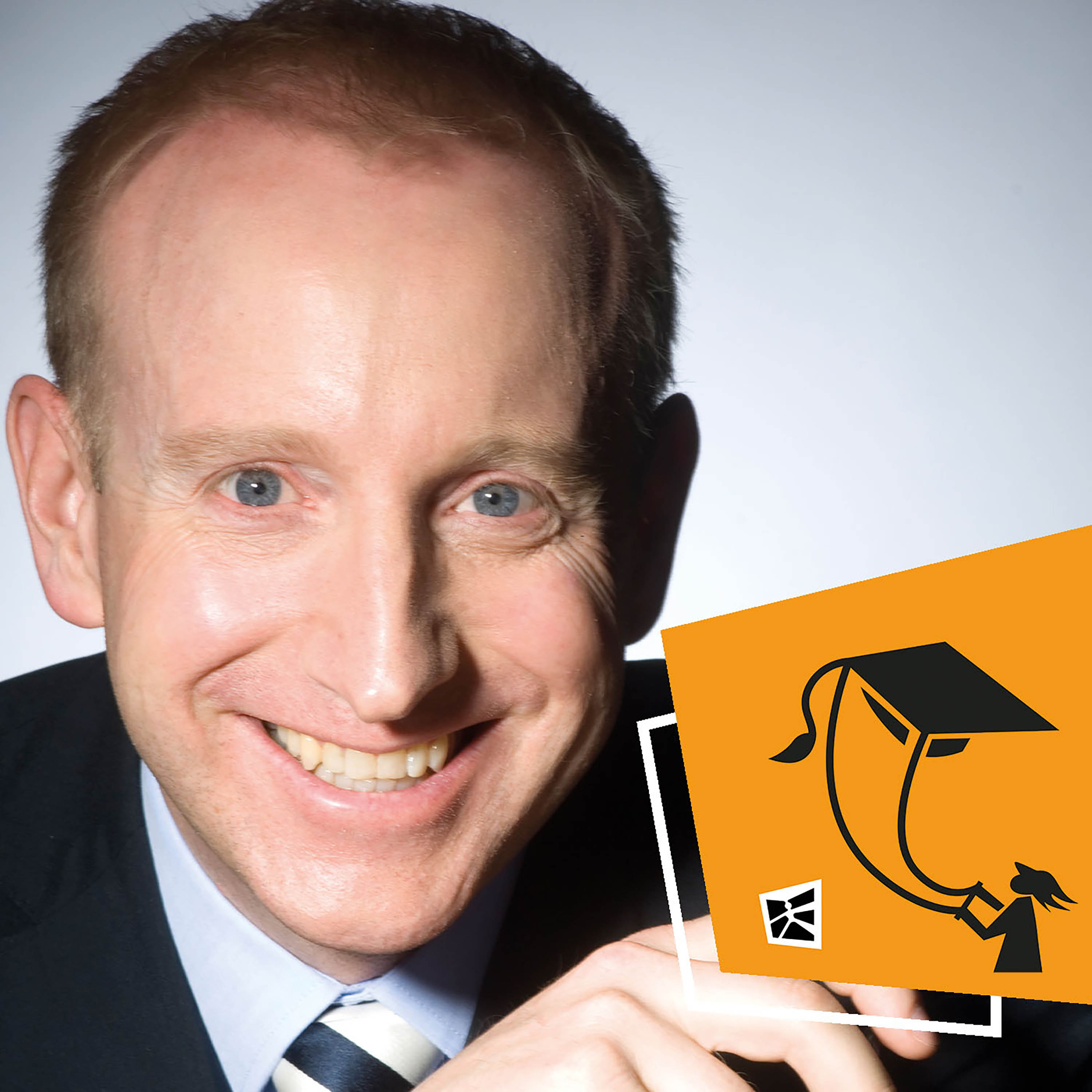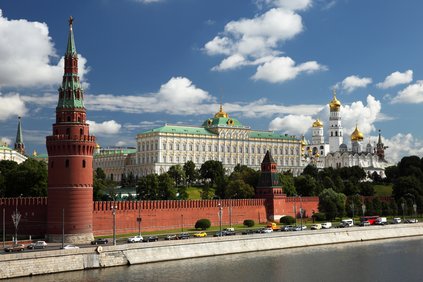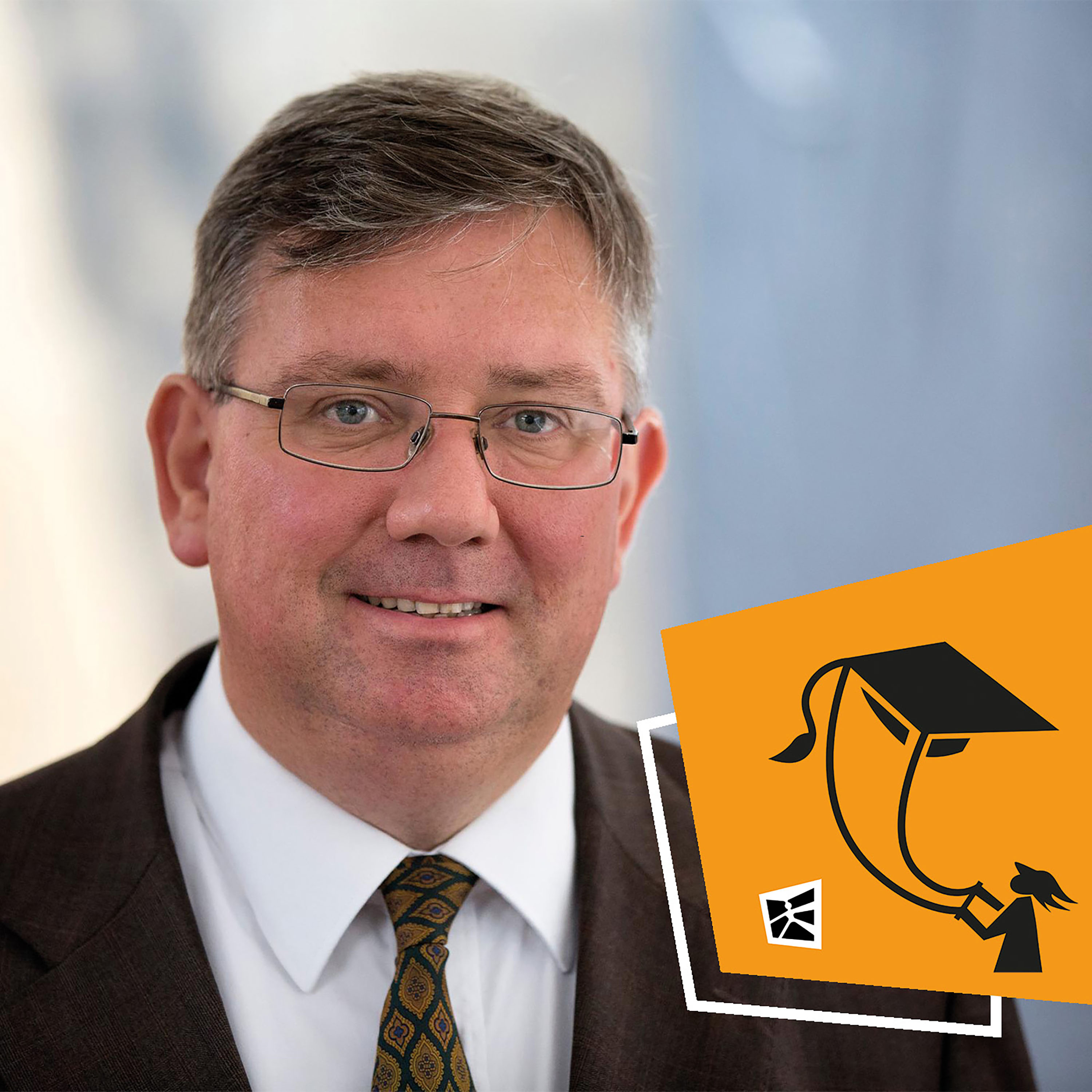Background - 28.02.2023 - 13:00
The international community focus on Ukraine
One year into the Russian invasion of Ukraine, Professor James Davis talks about international cooperation, cluster bombs and what could hypothetically happen if Putin were removed from power.

Munich Security Conference: Prof. James W. Davis chaired the Transatlantic Forum, which included the President of the European Commission Ursula von der Leyen and Leader of the Senate Republican Caucus and Member of the Senate Select Committee on Intelligence Mitch McConnell.
Prof. James Davis is a political scientist with a focus on Transatlantic relations, international politics and global security. He recently attended the Munich Security Conference where he again chaired the Transatlantic Forum, which included the President of the European Commission Ursula von der Leyen, the President of Lithuania Gitanas Nausėda, Leader of the Senate Republican Caucus and Member of the Senate Select Committee on Intelligence Mitch McConnell and Bavarian Minister-President Markus Söder.
Professor Davis, you have attended the Munich Security Conference before, has the overall mood of the Conference changed since the Russian invasion of Ukraine?
There definitely is common understanding among members of the Transatlantic community that the Ukrainians deserve our support. That includes political, military and humanitarian support. Moreover, there is a broad consensus that Ukrainians should decide what their strategy should be and how they should direct their resources. That being said, the West wants to ensure that Kiev acts wisely and doesn’t inadvertently drag the Western allies into a conflict that could be much bigger and more destructive than it currently is.
How are the Europeans working with the United States?
You would probably have to back to the Cold War to find a time when Europeans and Americans were working so closely on so many different levels to achieve a common objective. The Biden Administration has been key in this respect. President Biden has been very careful to consult with European leaders every step of the way and he seems keenly aware of the unique domestic political constraints under which each of his European counterparts operates. This stands in stark contrast to the approach taken by the previous US administration. After the Trump experience, where the former US President discussed the possibility of America’s pulling out of NATO, European leaders still wonder how sustained American support for Ukraine will be, especially given the new Republican majority in the House of Representatives. That's why it was significant that representatives from the US Republican Party came to Munich and made it clear that they, too, clearly stand by Ukraine.
Ukraine’s Deputy Prime Minister Olexandr Kubrakow was denied access to cluster munitions, which are currently banned. His argument is that Russian forces are using them in Ukraine. Was this the right decision?
I believe so, yes. Vice President Kamala Harris announced that the US has concluded that Russian soldiers have committed war crimes and that Russia is guilty of the crime of aggression. It is important that the Western alliance does everything in its power to ensure that Ukraine continues to remain within the framework of the Laws of Armed Conflict and International Humanitarian Law. The position taken by the Republican Senator Lindsay Graham, who had always rejected the International Criminal Court in the past, was interesting. For the first time, he now favours American cooperation with The Hague and the International Criminal Court.
France’s President Macron said neither side will be able to have total victory and that what is needed is for Ukraine to carry out a military offensive that disrupts Russia and triggers negotiations. What would negotiations look like? Would Ukraine have to sacrifice some of its territories?
So far, no one has been able to tell me what the phrase "Ukraine must win" really means or what an end to war could look like. Even if Ukraine was to retake all of its territory, it could continue to be shelled by missiles from Russia. So you could have a victory on the battlefield, but war would persist and the people would continue to suffer. There may well be no diplomatic solution then and we could be witness to another frozen conflict. The question that then emerges is whether we would be ready to accept Kiev into NATO and the EU? There is no answer to that yet, although the EU seems to be signalling a willingness to take in the Ukraine in relatively short order.
Is there a solution that you could envision? What if Putin lost control of the Kremlin, would things return to normal?
There are those in the West that assume that if Putin were somehow removed from power, things could only get better. I am not so sure. Certainly, a failure on the battlefield would cost Putin more than he could win and could jeopardize Putin's political position at home. The elites may have supported Putin at first, but they don't want to suffer the long-term consequences of failure. The oligarchs want access to their frozen assets abroad, cosmopolitans want to go back to skiing in the Alps and send their children to English boarding schools.
Supporters of this theory therefore expect that Putin will be removed from office, whether through a military coup or at the ballot box during next presidential election planned for March 2024. They hope that a new Kremlin leadership would seek an end to the war and a return to more normal relations with the West. However, the basic assumptions here are questionable.
I think it more likely that a coup would emanate from Putin's right rather than his left. Yevgeny Prigozhin of the Wagner Group has already indicated that Moscow's interest in restoring post-war relations with the West is hampering efforts to win on the battlefield. Meanwhile Chechen leader Ramzan Kadyrov has urged Russia's Muslims to prepare for jihad against the West. A coup lead by hard-liners might increase the influence of such thugs in Russia and diminish the prospect of a negotiated peace.
More articles from the same category
This could also be of interest to you
Discover our special topics



![[Translate to English:] Choix Goncourt de la Suisse | unisg.ch](https://www.unisg.ch/fileadmin/_processed_/b/a/csm_Choix_Concourt_de_la_Suisse_HT-Stibi-069_2110740678.jpg)












